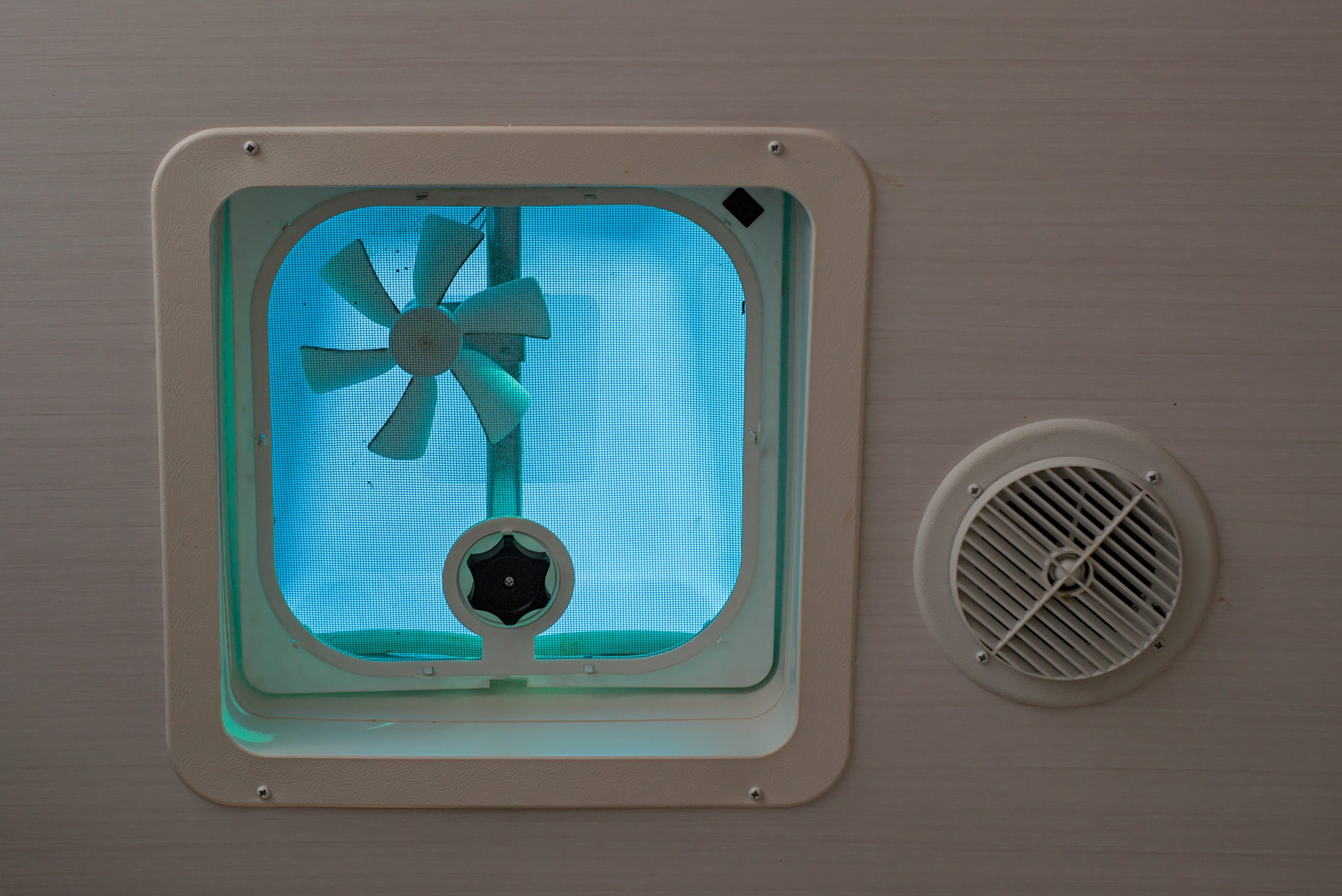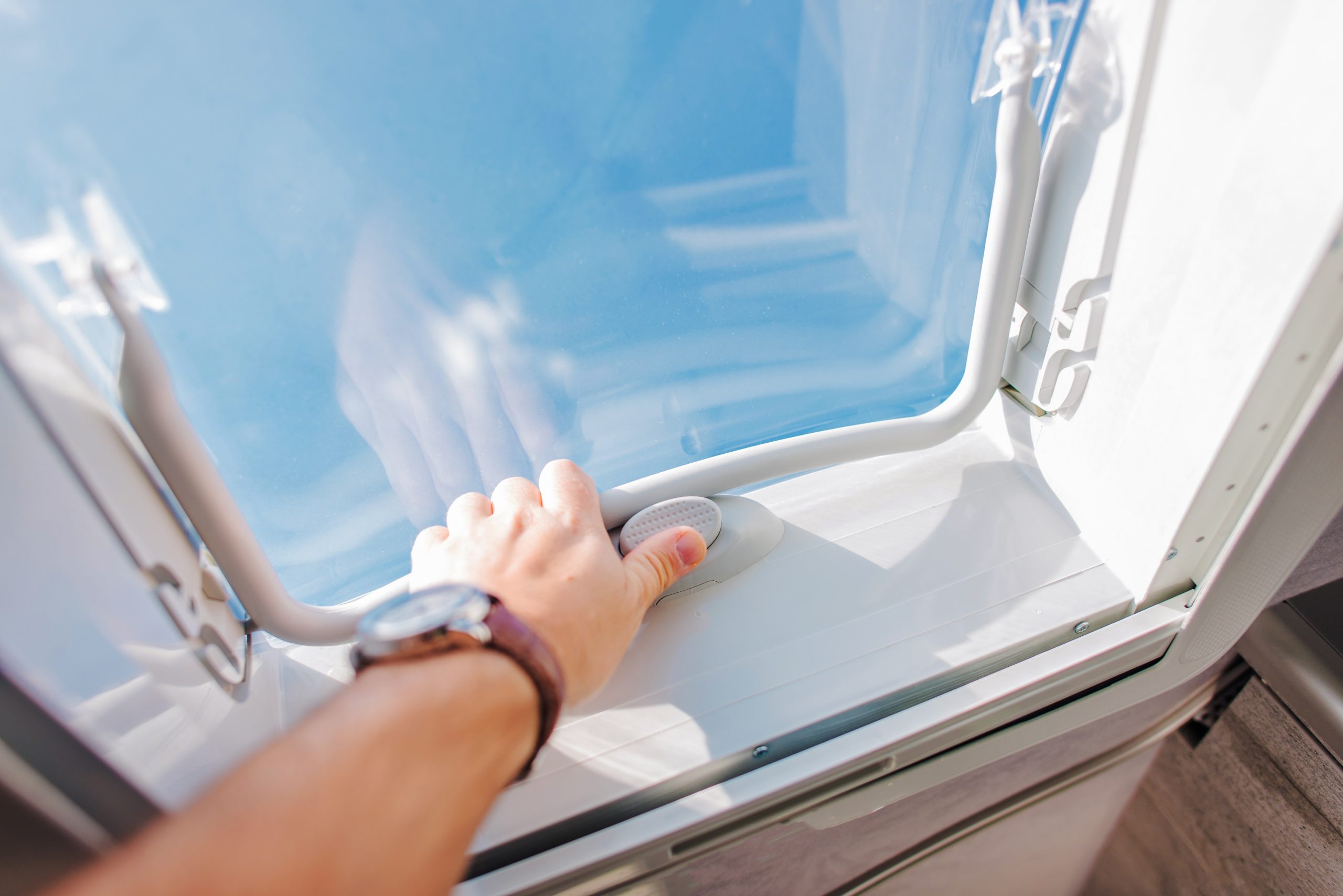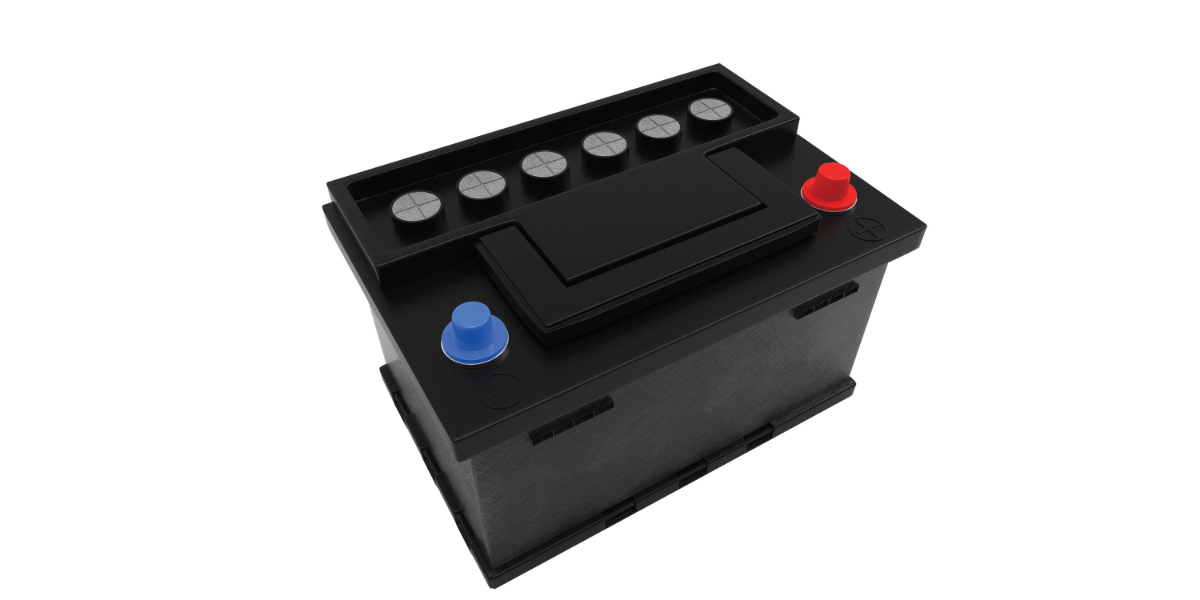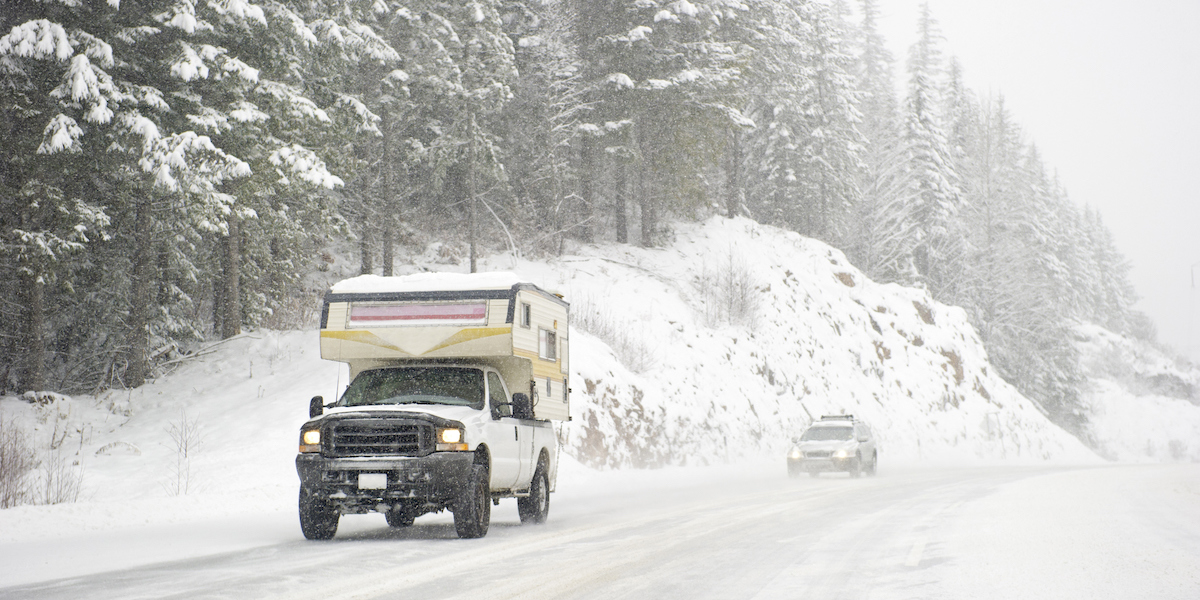Tips for Keeping Your RV’s AC in Good Shape All Summer Long
From preventative maintenance to cleaning and more, check out all the ways to make sure your RV keeps its cool this season.
Image Caption:
Summer camping is a lot more fun if you have multiple ways to stay cool. I personally learned this lesson the hard way as a tent camper heading through the southern part of the U.S. and had to spring for a jobsite fan just to provide a little extra airflow in my tent. If you think ahead a little more than I did and you have an RV, travel trailer, or camper van with an air conditioning unit…well, lucky you! But you may need to use these tips for keeping your RV’s AC in good shape through the summer season.

Image: Shutterstock
Tip #1: Check and Clean The Filter Regularly
Checking and cleaning the filter(s) on your AC unit(s) is the simplest way to keep your RV cool in the most efficient manner possible. These filters can quickly become clogged with dust and debris in RVs because you will naturally be camping in places with…dare I say it…dirt!
Of course, some campgrounds offer highly manicured concrete or asphalt pads. Generally speaking, however, the filters in RV AC units should be cleaned more frequently than the filters in a residential heating or air conditioning system.
If you are living in your RV full time, it is best to check and clean the filter every two to three months. For those that only travel in an RV a handful of times during the summer season, this check can be part of your seasonal RV maintenance checklist.
In terms of the method for cleaning, you can use an air compressor to blow particles and debris out of the filter when it is still dry. From there, you can use warm water and mild detergent to remove any remaining debris. Just make sure you allow the filter(s) to dry completely before replacing them.
Tip #2: Check Condenser Coils and A/C Hood
Now it is time to head up onto the roof. Take some gentle cleaning supplies up there. Because if you haven’t been on your roof in a while, you might want to clean hood and the area around your air conditioning unit.
The main thing you want to check, however, is the state of the condenser coils on the unit itself. If these coils are clogged, bent, or pinched together, it can prevent the fan from blowing hot air out of your rig.
That will not only cause your AC to work inefficiently, but it can also cause larger issues if the unit can’t regulate its internal temperature properly. This can lead to overheating that will cause you to replace your entire AC unit.
While you are on the roof, also inspect the hood around your AC unit for cracks or holes. Minor cracks usually don’t cause major issues, but large holes can allow water to enter the unit and cause electrical damage or other serious issues.
Tip #3: Check Voltage at Your Campground
Most RV AC units require a minimum of 115 volts to operate at maximum efficiently. Unfortunately, testing this voltage isn’t as simple as plugging into your campground’s power source and checking whether or not your AC unit turns on.
Your AC can actually run on less voltage, but it won’t be operating nearly as efficiently as it can. And running your AC unit on lower voltages can also result in long-term damage. So, you may need to invest in a multimeter to check the voltage at each campground if you want to keep your AC in good shape throughout the summer season.
Tip #4: Minimize Unnecessary Use

Image: Shutterstock
There are plenty of creative ways to keep your RV cool without running your air conditioning unit. And the less you run your AC, the less it will strain to keep your RV cool in exceedingly hot summer temperatures.
Here are some ideas to help you minimize the amount of time you run your AC during the summer:
- Open windows at night to capture cooler night air. Then close windows and keep shades drawn during the hottest part of the day.
- Grab a portable, rechargeable fan (or two) to help circulate air and eliminate pockets of hot air getting trapped in areas that your AC can’t circulate.
- Park in shaded campsites to avoid direct sun exposure.
- Switch out those old light bulbs for high-efficiency LEDs. They emit up to 10 times less ambient heat!
- Do most of your cooking outside to minimize operating appliances that will heat up the inside of your rig (i.e. stovetop, oven, toaster, microwave)
- Open patio and window awnings to reduce the amount of direct sunlight that enters your rig.
Tip #5: Employ A “Cooling Zone” Strategy
Another way to keep your AC in good shape is to develop a more intentional strategy for the areas (zones) in your RV where you find cool air to be most essential. For example, sleeping areas may be your top priority if you struggle to fall asleep when it is too hot.
For others, the living area might be the top priority if you need a comfortable place to escape the afternoon heat. Ultimately, you get to decide which areas you need to be cool and at which times you want them to be so.
Using a “cooling zone” strategy will allow you to close off certain rooms (and the corresponding ductwork) to channel cool air to the places you need it most. You will also be able to rotate zones during different parts of the day for maximum comfort.
For example, you might close the bedrooms and bathroom during the day to direct cool air into the main living area. But, you can flip this approach an hour or two before everyone heads to bed so that you can all sleep comfortably and wake up feeling well rested.
Tip #6: Address Needed Repairs ASAP!
The last tip I’d like to share is that you shouldn’t hesitate to have a professional evaluate (and potentially repair) your AC if it is operating well below its capability. You don’t need to suffer through a summer season of inadequate AC performance!
The sooner you address any needed repairs, the more you will extend the overall life of your AC unit. Plus, it can often help you avoid larger and more costly repairs down the line.
Keep in mind that all of your RV’s appliances require regular care and maintenance. If you can set a rotating schedule for checking and performing routine cleanings of your appliances, you can avoid being overwhelmed by having to address them all at once.
In addition, you can probably save yourself from being in the unfortunate situation of having multiple appliances ‘out-of-service’ at once. I know appliance maintenance isn’t the reason you got into RVing in the first place, but taking care of it will get you back to those activities that you do enjoy.
I hope that you have found several useful tidbits in these tips for keeping your AC in good shape throughout the summer season. And I wish you the best of luck in all of your travels during the upcoming season!





